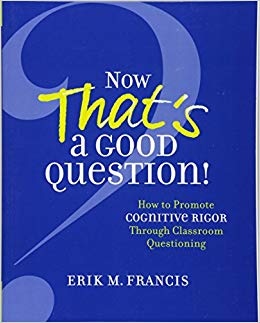Wicked Problems & Impossible Projects: 33 Questions at DOK Level 4
Wicked problems and impossible projects are complicated by nature because of the many components, factors, individuals, and resources affected and involved. They promote cognitive rigor by providing students with the opportunity to demonstrate and communicate their knowledge and thinking at the highest level of Bloom’s taxonomy (analyze, evaluate, create) and deepest levels of Webb’s models (strategic and extended thinking). Here are examples of good questions our students can respond to using the deeper knowledge and thinking they have acquired and developed.
- How should global climate change be addressed?
- What should be done to reduce crime?
- How should issues regarding scientific and technological development be addressed?
- How powerful should government and nations be?
- What needs to be done to address pollution?
- What needs to be done to address water deficits and droughts?
- Why should the federal and state tax systems be reviewed?
- How should issues related to poverty be handled?
- How should immigration be handled?
- How should nations address and respond to global conflicts and issues?
- What would be a good national immigration policy?
- What should be the consequences for someone who breaks the law based on moral convictions?
- What should be done about rising healthcare costs?
- How should nations address and respond to epidemics caused by plague?
- Why should drugs be legalized or remain illegal?
- Who should have the right or not be granted the right to keep and bear arms?
- What needs to be done to address deforestation?
- What need to be done to manage the increasing rate of extinction?
- What needs to be done to maintain or improve race relations?
- What needs to be done to increase maritime safety?
- What needs to be done to ensure a balance between civil liberty and national security?
- How should a nation invest its efforts and funding?
- What needs to be done for an organization to develop and prosper?
- How should international drug trafficking be handled?
- What needs to be done to ensure natural resources do not become depleted>
- How should criminals be punished for their crimes?
- How should the gap between social classes be addressed?
- Why should animal testing be banned, permitted, or regulated?
- Why should stem cell research be permitted or forbidden?
- How should schools be held accountable?
- How responsible should a government be for the welfare and security of its citizens?
- How should domestic and global terrorism be addressed?
- How should children be educated?

Source
Francis, E. "Argumentative Questions for Wicked Problems and Impossible Projects." Now That's a Good Question! How to Promote Cognitive Rigor Through Classroom Questioning. ASCD, 2016, pp.162-163.
